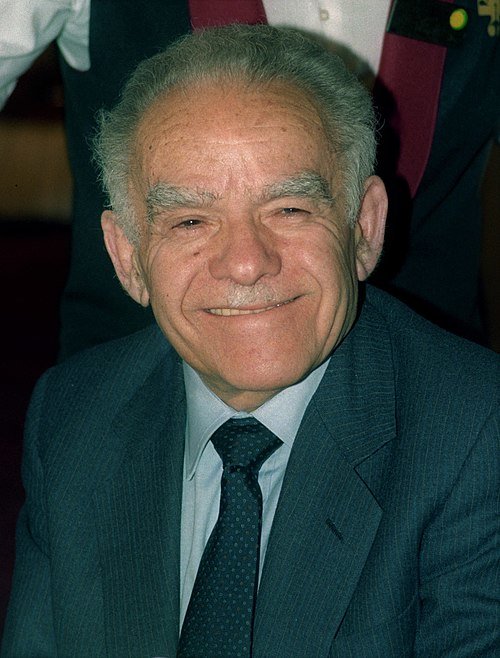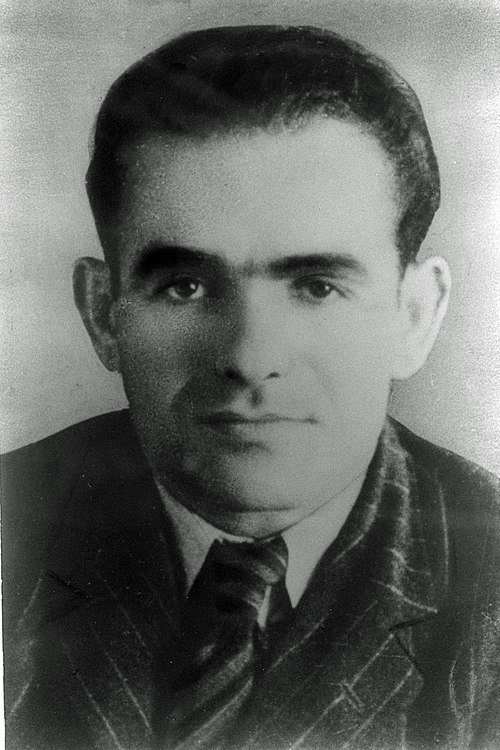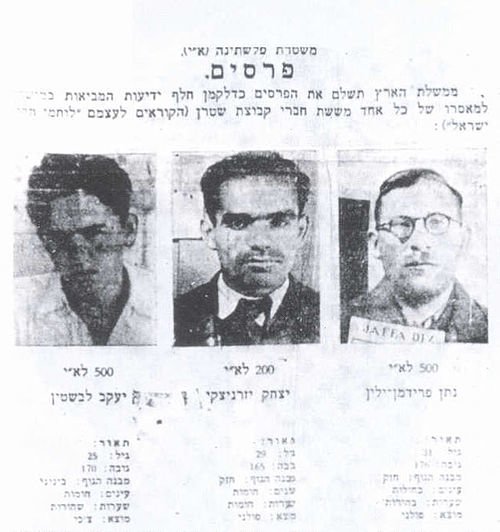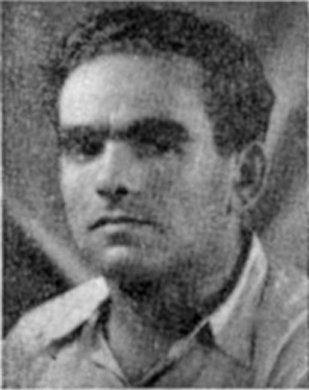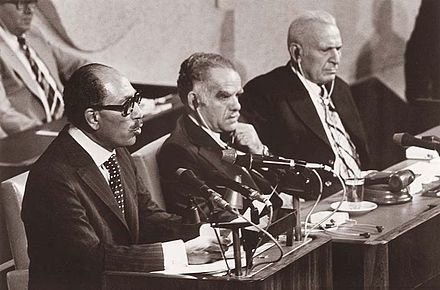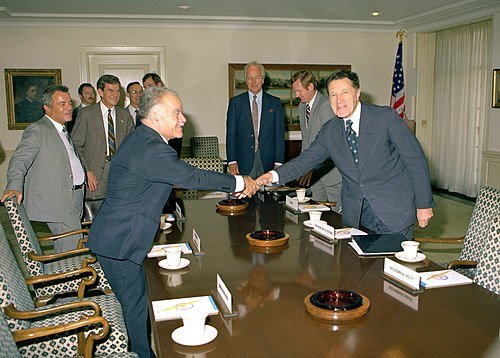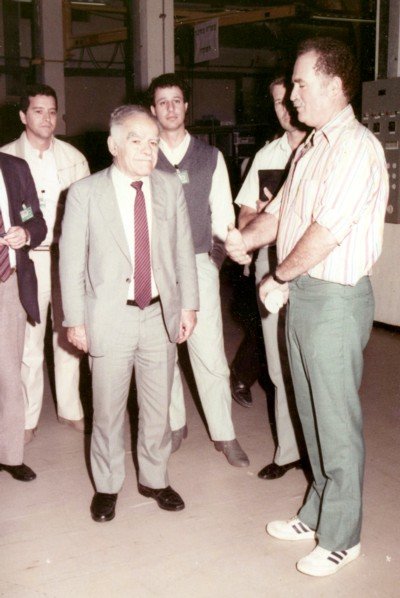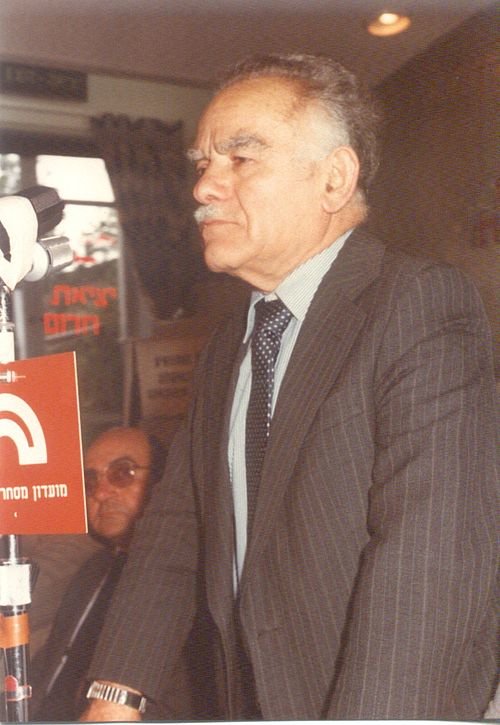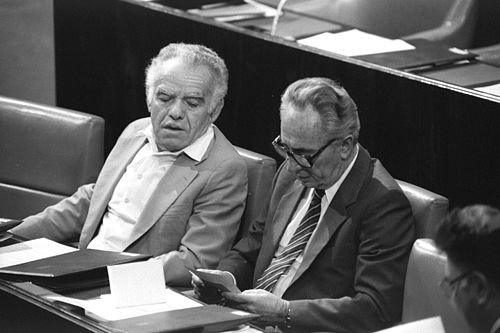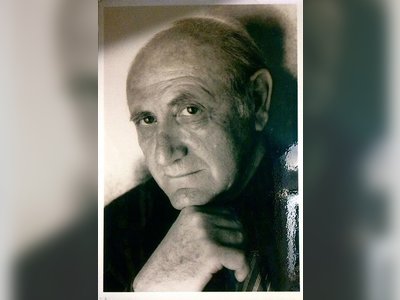Isaac Shamir
Isaac Shamir, born as Isaac Yezernitsky on October 22, 1915, in Rozhynoy, an area that was part of the Russian Empire but later became part of Poland (now in Belarus), was a prominent Israeli statesman. He served as the seventh Prime Minister of Israel, held ministerial positions in various Israeli governments, served as the Speaker of the Knesset, led the opposition, and played a significant role in the Israeli intelligence agency, "The Mossad," and the Lehi organization.
After serving as the Speaker of the Knesset and Foreign Minister, Shamir was elected as the seventh Prime Minister of Israel in October 1983 following the resignation of Menachem Begin from the position. Shamir led the government for over six years.
Alongside his political rival, Shimon Peres, Shamir led the National Unity Government, which was established in 1984, with both of them taking turns as Prime Minister and Foreign Minister (Government number 21 under Peres and Government number 22 under Shamir).
In the years 1987-1988, he also served as the Interior Minister. In 1988, his party won the elections, and Shamir initially led another National Unity Government (Government number 23) and later a narrow government (Government number 24) after the "dirty trick" incident in 1990.
Shamir resigned as the leader of the Likud Party after it lost the 1992 Knesset elections. Until Benjamin Netanyahu's victory in the Likud's internal elections in 1993, Shamir served as the leader of the opposition. He retired from the Knesset after the 13th Knesset in 1996.
Shamir was known for his unwavering commitment to Israel's security and his deep attachment to the Land of Israel. Despite this, he participated in the Madrid Conference during his tenure as Prime Minister, which some viewed as a threat to Israel's territorial integrity.
As Prime Minister, Shamir dealt with missile attacks on Israeli cities during the Gulf War and refrained from retaliating to avoid endangering the coalition of 34 countries led by the United States and including Arab states that fought against Saddam Hussein.
In 2001, Isaac Shamir was awarded the Israel Prize for his lifetime achievements and special contributions to society and the country.
Isaac Shamir was born as Isaac Yezernitsky in 1915 to parents Pinha Perla and Shlomo Yezernitsky. He was born in the town of Rozhynoy, which, at the time of his birth, was in the Grodno Province of the Russian Empire, within the Jewish settlement area. Shortly thereafter, it became part of the young Poland (in the 21st century, Rozhany is located in Belarus).
His father was the head of the Jewish community in the town, which had a significant Jewish population at the time, comprising about two-thirds of the residents. Isaac had two older sisters, Miriam and Rebecca.
His parents were initially involved in the Bund, a socialist, secular, and anti-Zionist political party, but later shifted their support to the Zionist cause and played a crucial role in establishing Hebrew educational institutions. Shlomo Yezernitsky, Isaac's father, opposed the autocratic regime of Nicholas II, the Russian emperor, on behalf of the Zionist movement and the Jewish community.
When Isaac was three years old, the political upheavals following World War I and the Russian Civil War led to Rozhynoy becoming part of the Second Polish Republic. In 1919, during the Polish-Soviet War, Polish soldiers mistreated the town's Jewish residents, resulting in the murder of six Jews and extensive property damage.
Isaac Yezernitsky grew up in a Hebrew-speaking community with a strong Zionist orientation. His family's background had a limited impact on his education due to the prevailing cultural and educational standards in Poland.
His parents were not wealthy, and the expenses for enrolling their son in private educational institutions were relatively high compared to other educational options. In his later years, Shamir identified two prominent characteristics of his parents: patience and "a complete lack of guile." During the summer months, Isaac used to spend time with his grandparents and uncles who lived in remote villages like Rozhynoy in eastern Poland.
In his childhood, the family moved to the nearby city of Volkovysk. After completing his elementary education in Volkovysk, Isaac continued his studies at the Hebrew Gymnasium in Bialystok, where he completed his secondary education. During this time, Shamir primarily studied Hebrew and Yiddish literature but also started to identify with the Polish national movement.
He even incorporated excerpts from the Polish nationalist writer Adam Mickiewicz's poem "Konrad Wallenrod" into his writings. In 1934, Shamir began studying law at Warsaw University, alongside his enthusiastic involvement in the Betar organization. However, he did not complete his law studies because he immigrated to the Land of Israel in 1935.
After arriving in Israel, Shamir initially attended the Faculty of Humanities at the Hebrew University of Jerusalem but joined the Irgun (Etzel) organization in 1937, which led him to suspend his academic pursuits. To support himself financially, he worked as a construction laborer and as a clerk in the Accountant General's Office.
His family remained in Poland, and during the Holocaust, his parents, two sisters (Rebecca Pitkovski and Miriam Sklarbitz), and their families perished. His father, who had separated from the rest of the family, sought assistance from their Polish neighbors, but they betrayed him, leading to his murder. Shamir harbored deep and lasting resentment toward the Polish people for their betrayal of their Jewish neighbors and, in particular, his family.
In 1940, when he was involved in the Irgun, Shamir deliberated for an extended period about the path he should pursue and held discussions with David Raziel and Abraham Stern (Yair), as known by his underground alias.
In September 1940, he informed his comrades that he chose to stay with the Irgun because he believed Yair's path was too dangerous. However, in January 1941, due to the close cooperation between the Irgun and the British authorities, he left and joined the Lehi (Stern Gang), adopting the underground alias "Michael" after Michael Collins, who led the Irish Republican struggle against British rule in Ireland.
Shamir also adopted the family name "Shamir" during a period when he used it to evade pursuit by the British intelligence services. He grew a beard, wore a hat, and introduced himself as "Rabbi Shamir."
In December 1941, Shamir was arrested and detained at the Mizra detention camp. The Mandate authorities arrested Lehi member Joshua Zetler at his home, and they ambushed all the organization's members who were scheduled to visit him on that day, including Shamir. He was interrogated by Captain Wilkin, the head of the Jewish section in the British intelligence, who later participated in the assassination of Yair, carried out by Lehi in 1944.
In September 1942, Shamir escaped from the prison with the assistance of Lehi member Eliyahu Giladi. With the cooperation of the Kibbutz Movement, they reached the home of Yair, who agreed to take Shamir under his wing. Shamir received a small budget and was included in the group of activists.
After the assassination of the British minister of state, Lord Moyne, by Lehi members, Shamir went into hiding. He also participated in the organization's operations and took part in the preparation of explosives and other activities. After the assassination of Yair by the British police in February 1944, Shamir assumed the role of Lehi commander.
Shamir married Shulamit Levy, a woman from Kfar Malal. The couple had two children, Yair and Gilada. Shamir's son, Yair, was named after Abraham Stern (Yair). Shamir's daughter, Gilada Diamant, is a successful artist.
Shamir led the organization until August 1944, when he, along with Eliyahu Giladi, was arrested in Tel Aviv. In 1946, after being released from the detention camp, Shamir was arrested again and held in administrative detention. Following his release, he decided to go underground. During his time in hiding, Shamir held various roles in the Lehi organization and played a significant role in its activities.
In February 1948, with the impending establishment of the State of Israel, Shamir and other members of Lehi decided to disband the organization and integrate into the newly formed Israel Defense Forces (IDF). Shamir joined the IDF and served in the Givati Brigade during the 1948 Arab-Israeli War. He later became a senior officer in the Mossad, Israel's intelligence agency, where he played a key role in various covert operations.
Isaac Shamir's political career began in the 1970s when he joined the Herut Party, which later merged with other right-wing parties to form the Likud. He was elected to the Knesset (Israeli parliament) in 1973 and served as a member of the Knesset for many years. He held various ministerial positions, including Minister of Foreign Affairs and Minister of Defense, before becoming Prime Minister in 1983.
As Prime Minister, Shamir faced many challenges, including managing Israel's relationship with the United States, dealing with economic issues, and navigating the complex political landscape in the Middle East. He was known for his strong stance on security issues and his commitment to Israel's right to exist as a Jewish state.
After leaving politics, Shamir continued to be involved in public life and remained an influential figure in Israeli politics. He passed away on June 30, 2012, at the age of 96. His legacy is still remembered in Israel, and he is considered one of the country's prominent leaders and statesmen.
- יצחק שמירhe.wikipedia.org
